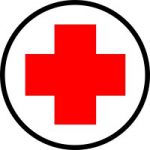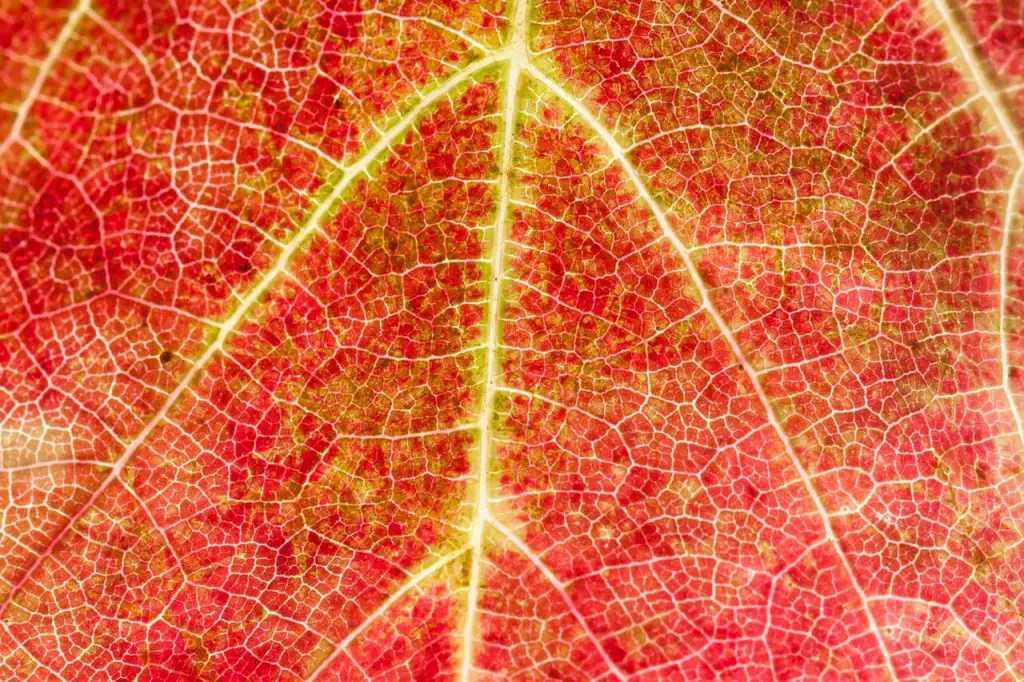Varicose veins and chronic venous insufficiency are the prices we pay for walking on two legs rather than four. These common conditions cause leg symptoms of swelling and sensations of heaviness, tension and pain in the legs, especially after standing still for long periods of time. Home treatments include wearing compression socks or stockings, taking herbal medicines, and massaging your legs with herbal gels proven to support the veins and stimulate blood flow.
What is chronic venous insufficiency?
The long veins in your legs have to carry blood back up from the feet to your heart against the pull of gravity. During exercise, the pumping action of your leg muscles as they squeeze the deep veins running through them helps to push blood upwards, while valves within the veins stop blood falling back between heart beats.
Chronic venous insufficiency is a common problem in which the leg veins and their valves do not work properly. This causes blood to pool in the lower legs – a condition known as stasis.
Symptoms of chronic venous insufficiency include feelings of heaviness, tension and aching in the lower legs. These symptoms tend to get increasingly worse as the day progresses. Fluid can also seep out of dilated veins to cause swelling of the ankles or calves.
Poor blood circulation means the supply of oxygen and nutrients to the lower legs is reduced, and wastes accumulate, as the lymph drainage system also becomes compressed or overloaded.
The overlying skin may become dry and discoloured and acquires a characteristic mottled pigmentation. You may also develop visible spider thread veins (telangiectasia).
If the valves in your deep leg veins collapse, then swollen veins become distended and tortuous and may bulge beneath the skin to form varicose veins.
What are varicose veins?
Varicose veins develop when weak valves within your long veins give way under the pressure of supporting the weight of a long column of blood. The pooling blood causes superficial veins to become dilated and twisted to form worm-like varicosities.
Being overweight can also affect blood return from the legs, and weaken the tissues that support the leg vessels to make varicose veins more likely.
The symptoms of leg varicose veins can include:
- Visible, bulging, tortuous veins
- Aching and dragging sensations
- Swelling of the ankles
- Itching
- Bleeding when knocked
The symptoms of varicose veins usually get worse as the day goes on, especially after standing for long periods of time. You may also develop visible spider thread veins (telangiectasia).
In severe cases, lack of blood flow results in tissues of the lower leg becoming starved of oxygen. The overlying skin becomes discoloured, scaly and dry (varicose eczema) and can eventually break down to form a leg ulcer.
Support socks and compression stockings
Wearing elasticated socks, stockings or tights provide additional support for compromised veins and help to keep varicose veins comfortable.
Measure your calf size to ensure you get the right size.
- Wear Class I elastic support socks, stockings or tights for mild problems
- Wear Class II knee-length compression stockings for moderate varicose veins
- Wear Class III graduated compression stockings for severe symptoms.
Alternatively, if you don’t want to wear compression socks, but want to avoid normal socks that cause restriction around your ankles, try Gentle Grip which are among the most comfortable socks in the world (i know, I’ve tried them!)
Gentle Grip socks have an in-built HoneyComb top that adjusts to your ankle shape without causing painful constriction rings. The socks are designed to mould to the natural contours of your legs and maintain a gentle grip without further compromising a poor circulation or making leg symptoms worse.
Three out of four women develop leg swelling before or after pregnancy, while one in two get varicose veins. If you develop swelling in the legs, especially if you also have pain the calf, seek immediate medical advice to rule out conditions such as pre-eclampsia or deep vein thrombosis (DVT).
When more serious conditions have been ruled out, elasticated leg wear is the mainstay of treatment as you can’t take herbal medicines during pregnancy. Venosure Maternity, Graduated Compression Socks offer soft, comfortable support for swollen legs during pregnancy, and help to reduce aches, puffiness, varicose veins and spider veins.
Red vine leaf for chronic venous insufficiency
Red vine leaf extracts are one of the most effective herbal medicines for chronic venous insufficiency. Research shows that red vine leaf extracts stabilise the thin lining of tiny blood vessels in the legs and reduce their permeability. As a result, less fluid leaks from the circulation into the tissues so that swelling of the calves and ankles (oedema) improves. These extracts are available as oral herbal medicines, and as a topical gel to apply to the legs.
In Germany, an estimated 7% of adults take red vine leaf extracts (Antistax), mostly on the advice of their doctor, to reduce leg pain, feelings of heaviness, swelling and other symptoms associated with chronic venous insufficiency.
You can use red vine leaf extracts together with support socks or compression stockings, or on their own, depending on the severity of your symptoms.
When 71 people with chronic venous insufficiency took 360mg red vine leaf extracts for 6 weeks, blood flow through their skin capillaries (measured using a laser Doppler device) increased by +241.8 units compared with a reduction in blood flow of -41.0 units when the same people used placebo. Red vine leaf extracts also improved oxygen levels in their leg circulation, and reduced leg swelling and calve circumference.
Another study involving 257 men and women with chronic venous insufficiency compared the effects of 360mg or 720mg red vine leaf extracts per day against placebo for 12 weeks. While legs continued to swell in those taking placebo, there was a significant reduction of 76g fluid (weight of water displaced) in those taking the lower dose, and 100g reduction with the higher red vine leaf dose. Changes in calf circumference decreased, symptoms such as tired, heavy legs, sensations of tension, tingling and pain, improved, and reductions in swelling were at least equivalent to those expected from wearing compression stockings.
Studies involving people with moderate-to-severe chronic venous insufficiency confirm that taking a dose of 720 mg red vine leaf extract per day for 12 weeks, significantly reduced lower limb volume and decreased leg pain compared with placebo in these more severe cases.
Pycnogenol for chronic venous insufficiency
Pycnogenol is a unique blend of antioxidants obtained from the bark of the French maritime pine (Pinus maritima). Pycnogenol contains flavonoid polyphenols (proanthocyanidins) which are 50 times more powerful than vitamin E and 20 times more powerful than vitamin C.
Pycnogenol has three main actions that are effective against chronic venous insufficiency. It is antioxidant, anti-inflammatory, and regulates the production of nitric oxide – a substance involved in blood vessel dilation. Together, these actions help to strengthen blood vessels, improve their elasticity and reactivity, lower a high blood pressure, reduce cholesterol and help to prevent abnormal blood clotting.
Pycnogenol strengthens fragile capillaries and veins to reduce ankle swelling and are used to reduce leg swelling (oedema) during long-haul air flights. A study involving 86 people with severe chronic venous insufficiency, ankle swelling and a previous history of venous leg ulcers found that Pycnogenol capsules (150 mg or 300 mg a day for 8 weeks) were better at improving leg symptoms that a standard French medical treatment (a blend of flavonoids called Daflon) – even in people with severe chronic venous insufficiency.
When Pycnogenol was compared against elasticated stockings in 98 people with swollen legs due to chronic venous insufficiency, taking 150 mg Pycnogenol alone was more effective than using compression stockings alone for decreasing ankle swelling and clinical symptom scores. No side-effects were reported.
Pycnogenol also reduces cramp and muscle pain in people with impaired circulation to the legs. And, in people with venous leg ulcers associated with chronic venous insufficiency, Pycnogenol hastened leg ulcer healing when added to standard treatment.
Horse chestnut for chronic venous insufficiency
Extracts from the conker seeds of the Horse chestnut tree (Aesculus hippocastanum) contain a blend of triterpene saponins that are known as escin (aescin). These extracts are available as oral herbal medicines, and in topical creams and gels to apply to the legs.
Horse chestnut extracts have a similar action to red vine leaf and Pycnogenol is helping to tighten small blood vessels, reduce excessive permeability and stop fluid leakage from the circulation into the peripheral tissues. The main way in which Horse chestnut extracts are believed to work, however, is in reducing the activity of enzymes (proteoglycans) that would otherwise lead to excessive breakdown of supporting tissues around capillary walls. Horse chestnut extracts reduce this weakening of the tissues supporting peripheral blood vessels.
Horse chestnut extracts are used to treat varicose veins, venous insufficiency, venous ulcers, haemorrhoids, nosebleeds, and to reduce swelling following sprains and strains.
Five clinical studies shows that Horse chestnut extracts significantly reduce fluid exudation across capillaries compared with placebo, and that extracts can reduce sensations of tiredness, heaviness, tension, itching, cramping, pain and swelling in the legs in those with varicose veins and chronic venous insufficiency. One trial suggests that horsechestnut extracts are as effective as treatment with compression stockings.
A gold-standard Cochrane review concluded that Horse chestnut extracts are an effective and safe short-term treatment for chronic venous insufficiency.
I’m also a great fan of Badedas bath or shower gelee which contain horse chestnut extracts, smells divine, and relaxes aching legs at the end of a long, tiring, day.
Other self-help for chronic venous insufficiency and varicose veins
Aim to lose as much excess weight as possible.
- Walk regularly and avoid standing still for very long.
- Put your feet up as often as possible.
- Massage affected parts of your legs with a moisturising cream every day.
- If wearing support socks or stockings, put them on before getting out of bed.
- Seek immediate medical advice if you develop leg pain, bleeding, inflammation/clotting of superficial veins (phlebitis) swelling and pain in a calf (a possible sign of deep vein thrombosis) or if you develop a leg ulcer.
Have you used any natural remedies to treat chronic venous insufficiency or varicose veins? If so, did you find them helpful? Please leave any questions, comments, or product recommendations using the comment form below. Thanks.
Image credit: jmarchn/wikimedia; dreamstime;

